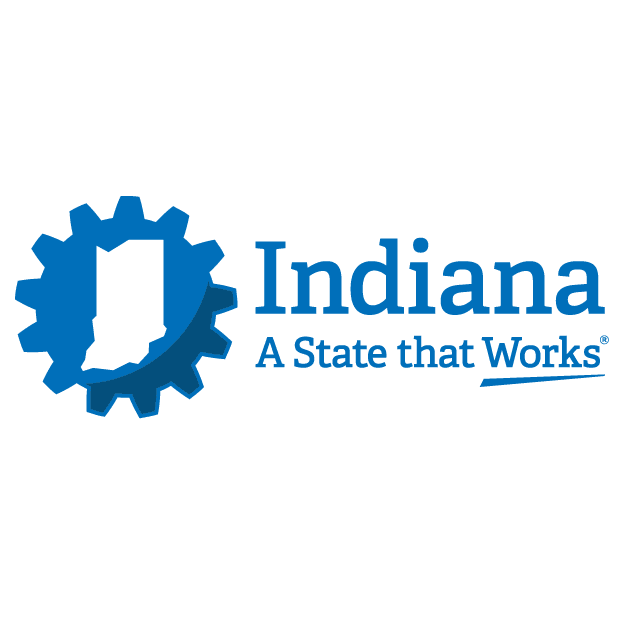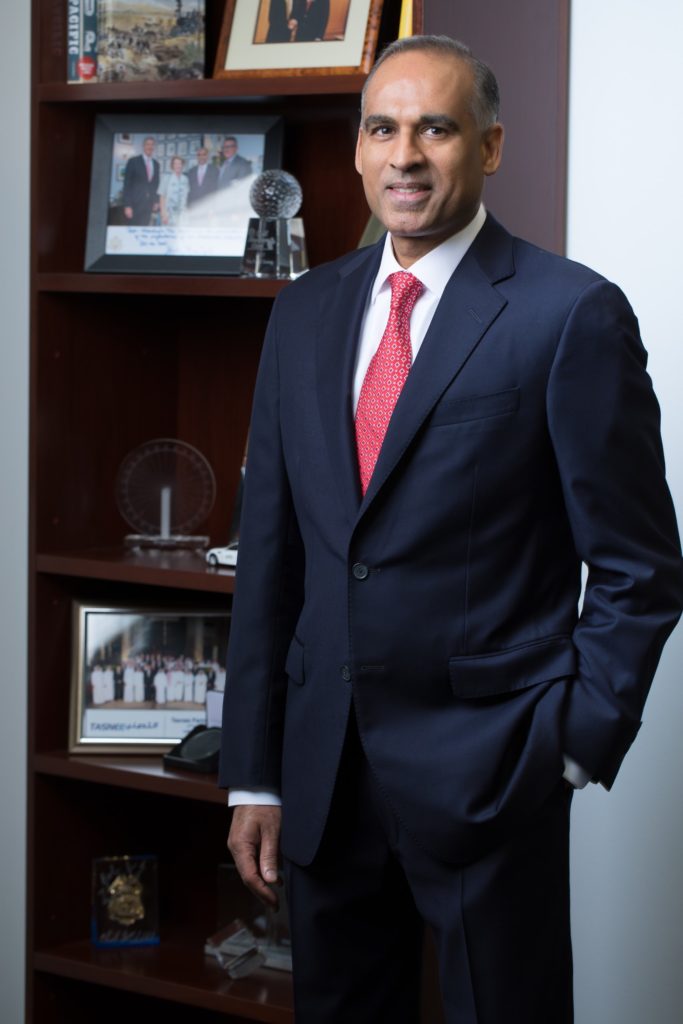 This is the second in a new series, “Masters of Manufacturing” presented in partnership with The Indiana Economic Development Corporation. Each month we’ll share insights and ideas from innovative, growth-minded manufacturing CEOs from across the nation as they navigate this tricky time in history. Part 1 is here
This is the second in a new series, “Masters of Manufacturing” presented in partnership with The Indiana Economic Development Corporation. Each month we’ll share insights and ideas from innovative, growth-minded manufacturing CEOs from across the nation as they navigate this tricky time in history. Part 1 is here

Bob Patel had a plan for his company, LyondellBasell, to ride the U.S. shale boom to unprecedented heights. But as CEO of the Dutch energy giant’s Houston-based operations in America, the veteran petrochemical executive first had some cleaning up to do.
Today, less than 10 years after one of the world’s largest energy companies was plunged into bankruptcy, Patel is presiding over a $40-billion giant that has entered a remarkable new era of prosperity and expansion—and is redefining this sector of process manufacturing.
“We’re building a new plant and doing acquisitions, building the company brick by brick and continuing to climb in terms of our capabilities, our reach and, ultimately, our ability to create value for shareholders,” Patel says.
The company has about 19,500 employees and more than 12,000 contractors who work for LyonellBasell daily at operations across the global enterprise, which is based in Rotterdam. Patel is CEO worldwide and works at the Houston headquarters of U.S. operations. The company has more than 5,000 employees in the offices and at nine manufacturing facilities along the Gulf Coast.
Since assuming the job four years ago, Patel has overseen the company’s 2018 acquisition of A. Schulman, making it the world’s largest manufacturer of compounded materials. He also has led LyondellBasell to make several other strategic acquisitions in growing markets and is building new plants around the world.
But the United States is key to the company’s strategy in large part because of the abundance of natural-gas liquids at relatively stable prices from the oil patch in Texas and the rest of the American heartland. That “has certainly enabled our profitability,” Patel says. LyondellBasell’s various petrochemicals find their way into plastics in interior and exterior trim for cars, medical and food packaging, and other containers made out of polyethylene, polypropylene and polyolefin.
Moreover, LyondellBasell has been able to boost its exports of petrochemicals from U.S. plants to 15 to 20 percent of its total production, with a goal of boosting that to 25 to 30 percent with destination markets of Asia, Europe and Latin America.
Such a pinnacle was difficult to imagine a decade ago. Lyondell Chemical was targeted by a Soviet-born American billionaire who wanted to join the company with his own petrochemical maker based in Europe in a $13-billion transaction. But the debt load combined with the financial meltdown and Great Recession of a decade ago proved bad timing, and the company had to close plants and lay off thousands of workers.
Patel intersected LyondellBasell in 2010 after his own journey that began precariously. A native of Mumbai, Bhavesh Patel left India when he was 10 years old with his mother and other family members and moved to Cleveland. While she had been head of an all-girls school in their native country, Patel’s mother saw the chance for a better life for her family and left on the around-the-world voyage “with quite literally $12 left in her pockets,” Patel told a publication of Temple University. That’s where he earned his executive MBA after graduating from Ohio State University and going to work for Chevron Phillips.
He worked for Chevron and Chevron Phillips for more than 20 years, then joined LyondellBasell as senior vice president of olefins and polyolefins for America. After helping LyondellBasell climb out of the bankruptcy vise, Patel reordered many parts of the company as he led early-stage development of a plan to capture the U.S. shale-gas advantage. He rose to the executive vice president level and then became CEO in January 2015.
In addition to taking LyondellBasell to ever-higher ground for shareholders, Patel has embraced concerns about plastic waste and has engaged himself and the company in working on that problem in a variety of ways.
For instance, Patel joined Procter & Gamble CEO David Taylor in founding the Alliance to End Plastic Waste, a group of about 30 major companies that are collectively attacking an ecological challenge that has engaged the body politic in America and elsewhere.
Also, LyondellBasell is researching a variety of ways to make its materials more recyclable and for customers to use less of it. “Plastics are actually a very good sustainability story,” Patel says, citing packaging that keeps foods fresh, plastic pipes that deliver clean water, and auto parts that enable vehicle light-weighting that cuts gasoline consumption.
“The challenge has been what happens after we have consumed them,” he says. “We need to engage the entire value chain and create more circularity.

Chief Executive Group exists to improve the performance of U.S. CEOs, senior executives and public-company directors, helping you grow your companies, build your communities and strengthen society. Learn more at chiefexecutivegroup.com.
0

1:00 - 5:00 pm
Over 70% of Executives Surveyed Agree: Many Strategic Planning Efforts Lack Systematic Approach Tips for Enhancing Your Strategic Planning Process
Executives expressed frustration with their current strategic planning process. Issues include:
Steve Rutan and Denise Harrison have put together an afternoon workshop that will provide the tools you need to address these concerns. They have worked with hundreds of executives to develop a systematic approach that will enable your team to make better decisions during strategic planning. Steve and Denise will walk you through exercises for prioritizing your lists and steps that will reset and reinvigorate your process. This will be a hands-on workshop that will enable you to think about your business as you use the tools that are being presented. If you are ready for a Strategic Planning tune-up, select this workshop in your registration form. The additional fee of $695 will be added to your total.

2:00 - 5:00 pm
Female leaders face the same issues all leaders do, but they often face additional challenges too. In this peer session, we will facilitate a discussion of best practices and how to overcome common barriers to help women leaders be more effective within and outside their organizations.
Limited space available.

10:30 - 5:00 pm
General’s Retreat at Hermitage Golf Course
Sponsored by UBS
General’s Retreat, built in 1986 with architect Gary Roger Baird, has been voted the “Best Golf Course in Nashville” and is a “must play” when visiting the Nashville, Tennessee area. With the beautiful setting along the Cumberland River, golfers of all capabilities will thoroughly enjoy the golf, scenery and hospitality.
The golf outing fee includes transportation to and from the hotel, greens/cart fees, use of practice facilities, and boxed lunch. The bus will leave the hotel at 10:30 am for a noon shotgun start and return to the hotel after the cocktail reception following the completion of the round.